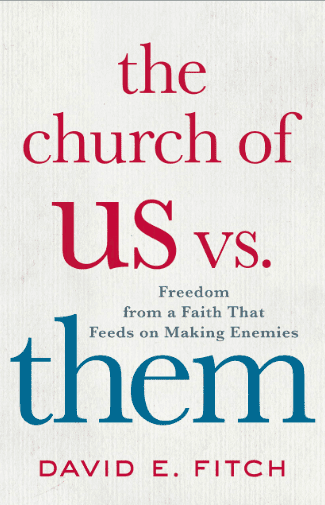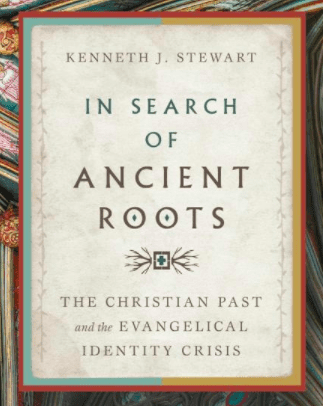This is not about the right candidate; this is about how evangelicals frame their relationship to politics. And one of the best pieces to read on this topic is Geoffrey C. Bowden’s “The Evangelical-Anabaptist Spectrum,” an essay in the fine book The Activist Impulse: Essays on the Intersection of Evangelicalism and Anabaptism (Pickwick). What Bowden is sketch the spectrum from Francis Schaeffer to John Howard Yoder and, at the same time, shows Jim Wallis began more like Yoder and is today more like Schaeffer. Yikes, that’s quite the thesis.
Do you think he gets Wallis right? Schaeffer?
 Francis Schaeffer played an important role in my own thinking; as a college student he taught me to think critically about current, inadequate conditions in the church. I read everything he wrote until he wrote No Little People, and after that I bought a book or two — including A Christian Manifesto — but did not read much of him any longer. So this sketch by Bowden about Schaeffer surprised me a bit; Schaeffer was far more aggressive about how the evangelical was to enter and use the political process than I knew. Schaeffer himself moved from fundamentalism into European evangelicalism (and this is what attracted me to him) but then shifted toward a politically-active evangelicalism. He posed humanism over against a Judeo-Christian concept of truth. Like Jim Wallis, he thought evangelicals were far too inactive politically and culturally, and Schaeffer (mistakenly, I think) blamed Pietism, but that category stuck for many. Pietists were home praying; genuine evangelicals were activists. The issue for Schaeffer was justice but he meant law, and saw in the cross the manifestation of justice (which means a kind of satisfaction, penal substitution theory of how to make things right). But Schaeffer was wary of wrapping the faith with the American flag. So he wanted to reform the laws and protest the government when it failed to live up to the law (God’s law). Bowden: “Schaeffer then mines intellectual history to construct a defense of armed revolution against a government that failed to base its laws on the Bible” (298).
Francis Schaeffer played an important role in my own thinking; as a college student he taught me to think critically about current, inadequate conditions in the church. I read everything he wrote until he wrote No Little People, and after that I bought a book or two — including A Christian Manifesto — but did not read much of him any longer. So this sketch by Bowden about Schaeffer surprised me a bit; Schaeffer was far more aggressive about how the evangelical was to enter and use the political process than I knew. Schaeffer himself moved from fundamentalism into European evangelicalism (and this is what attracted me to him) but then shifted toward a politically-active evangelicalism. He posed humanism over against a Judeo-Christian concept of truth. Like Jim Wallis, he thought evangelicals were far too inactive politically and culturally, and Schaeffer (mistakenly, I think) blamed Pietism, but that category stuck for many. Pietists were home praying; genuine evangelicals were activists. The issue for Schaeffer was justice but he meant law, and saw in the cross the manifestation of justice (which means a kind of satisfaction, penal substitution theory of how to make things right). But Schaeffer was wary of wrapping the faith with the American flag. So he wanted to reform the laws and protest the government when it failed to live up to the law (God’s law). Bowden: “Schaeffer then mines intellectual history to construct a defense of armed revolution against a government that failed to base its laws on the Bible” (298).
Society is to be run by law; humanism is curved in on itself and one must transcend it with revelation; God’s law should be the foundation of society. Bowden observes that Francis Schaeffer almost never appeals to or quotes Jesus in his political theology. His political theory is about law, Mosaic law as the foundation.
 John Howard Yoder, whose writings appear on this blog often enough, turned to other sources (the teachings and example and cross of Jesus) and to other approaches to a political theology (an ecclesial, alternative society without withdrawing). Yoder, too, was urging Anabaptist communities to be less separate and more activist. For Yoder, political theology begins with eschatology, the Kingdom of God. A social ethic is shaped by kingdom theology. God uses the state toward the church. Jesus offered a different kind of power — cross, servant, love. The Christian’s responsibility then is to leaven society through an alternative society. Sometimes the Christian will have to use “middle axioms,” that is, language of culture that has Christian roots.
John Howard Yoder, whose writings appear on this blog often enough, turned to other sources (the teachings and example and cross of Jesus) and to other approaches to a political theology (an ecclesial, alternative society without withdrawing). Yoder, too, was urging Anabaptist communities to be less separate and more activist. For Yoder, political theology begins with eschatology, the Kingdom of God. A social ethic is shaped by kingdom theology. God uses the state toward the church. Jesus offered a different kind of power — cross, servant, love. The Christian’s responsibility then is to leaven society through an alternative society. Sometimes the Christian will have to use “middle axioms,” that is, language of culture that has Christian roots.
Yoder’s theology, stated most explicitly in The Politics of Jesus, is framed by the cross and while he’s a pacifist, he believes the church is to challenge the state with an alternative society and with a challenging message to the state. He did not enter into political action, though.
 Bowden’s essays seems intent on showing that Wallis shifted from a Yoderian framework in which the church played more of a role toward an activist phase in which he believed the way to change things was through the political process, and his other theme is that Wallis has increasingly reframed the gospel and the kingdom into political rhetoric, and Bowden’s not so sure this is about middle axioms but softening the message of the kingdom. Wallis’ entry point is poverty, though I’d say it is justice for the marginalized, especially the poor, but he’s also morphed into interests in war and budget. Bowden’s way of sketching Wallis is to compare Agenda for a Biblical People with God’s Politics and his Soul of Politics. Wallis’ earlier phase was more corporate (ecclesial) and more adversarial to the government over against the kingdom vision of Jesus. His earlier work is reserved in belief in the political process. In his later books, Bowden says, the books “leave the lofty heights of political theology behind, with very little mention of the Kingdom of God as an alternative political reality made manifest by the church” (313). The political body becomes the covenant community. He has, in other words, Americanized the kingdom of God. His focus is issues based and not kingdom based. His accusation: “Wallis crosses a line that dangerously imperils the Christian witness by mixing communities of the church and the state” (316).
Bowden’s essays seems intent on showing that Wallis shifted from a Yoderian framework in which the church played more of a role toward an activist phase in which he believed the way to change things was through the political process, and his other theme is that Wallis has increasingly reframed the gospel and the kingdom into political rhetoric, and Bowden’s not so sure this is about middle axioms but softening the message of the kingdom. Wallis’ entry point is poverty, though I’d say it is justice for the marginalized, especially the poor, but he’s also morphed into interests in war and budget. Bowden’s way of sketching Wallis is to compare Agenda for a Biblical People with God’s Politics and his Soul of Politics. Wallis’ earlier phase was more corporate (ecclesial) and more adversarial to the government over against the kingdom vision of Jesus. His earlier work is reserved in belief in the political process. In his later books, Bowden says, the books “leave the lofty heights of political theology behind, with very little mention of the Kingdom of God as an alternative political reality made manifest by the church” (313). The political body becomes the covenant community. He has, in other words, Americanized the kingdom of God. His focus is issues based and not kingdom based. His accusation: “Wallis crosses a line that dangerously imperils the Christian witness by mixing communities of the church and the state” (316).











